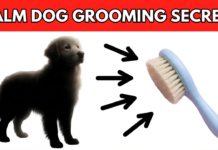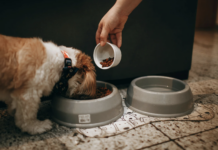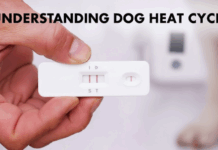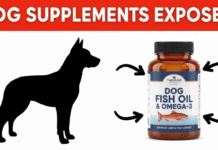Last Updated on August 26, 2022 by Dogs Vets
How Much Does It Cost To Clean or Brush A Dog’s Teeth?
Brushing your dog’s teeth is one of the most important things you can do for their overall health. But did you know that it costs $20-$40 per month to brush a dog’s teeth?
Do you ever wonder how much money you spend on your pet each year? The average cost of owning a dog in the United States is $9,000 annually.
If you want to know how much money you spend cleaning your dog’s teeth, then here’s a breakdown of what you’ll be spending on toothbrushes, dental chews, and other products.
Here’s how much it really costs.
If you think brushing your dog’s mouth is expensive, just wait until you see what it costs to take care of them! According to PetMD, the average cost of taking care of a dog is $1,200 per year. That means that if you own a dog for five years, you will spend more than $6,000 on its care.
So how much does it really cost to brush a dog‘s teeth? Well, according to PetMD, the cost varies based on where you live. In some areas, the price ranges between $20-$40 per visit. However, in other places, the cost can range up to $100 per visit.
This includes the cost of the brushes themselves, as well as the time spent brushing each day. If you’re looking to save money on dental care for your pet, consider using an at-home oral hygiene kit instead of going to the vet every few months.

These kits typically contain everything you need to clean your pet’s teeth, including a toothbrush, toothpaste, and even special treats designed to help them feel better while they’re getting brushed.
You can save money by buying a cheap set of brushes or using an old toothbrush from home. While brushing your dog’s mouth with a regular toothbrush will cost you anywhere between $20-$40 each month, you can use an at-home oral care kit for as little as $10 per month.
Kits usually come with everything you need to clean a dog’s mouth, including a toothbrush and paste, special treats, and even a water bowl.
If you’re looking for a low-cost option, you might consider purchasing a cheap set of dog toothbrushes. These inexpensive options usually come with two or three different sizes of bristle heads, which means you won’t have to buy multiple sets of brushes if you decide to switch between them.
View this post on Instagram
You can also use a manual toothbrush instead of an electric one.
If you’re looking for a more affordable option, consider using a manual toothbrush instead. Manual brushes are cheaper than electric ones, costing only $5-$15 per month. They work by moving back and forth across the surface of the teeth, rather than up and down.
Brushing your dog’s teeth is an important part of their overall care routine .
What Occurs During a Dog Dental Cleaning and How Long Does It Take?
An extraction-free cleaning typically takes between 45mins and 1-hour.
The veterinarian first does a medical examination to see if it’s safe for your dog to undergo anesthesia. If so, your dog will be put to sleep, intubated to keep an open airway, given oxygen, and given anesthetic gas.
To support your dog’s blood pressure and organ health under anesthesia, the majority of vets will also insert an intravenous catheter (IV) and deliver fluids.
An ultrasonic scaler, which vibrates rapidly, is used to clean the teeth in order to get rid of big chunks of tartar and plaque. Then, each tooth is cleaned on all sides and beneath the gumline with a hand scaler.
Dental probes, which are tiny tools that may fit in the space between the gum and the tooth, are used to gauge the size of these pockets. This is a crucial step since periodontal disease is indicated by abnormally deep pockets.
The mouth is rinsed and all tooth surfaces are polished once all plaque and tartar have been eliminated. Small grooves and etchings left from cleaning the teeth might draw more plaque and tartar, which will then stick there if the teeth are not polished.
Dr. Morgan advises that after polishing, the mouth should be rinsed once more and treated with fluoride.
How frequently should you have your dog’s teeth cleaned by a professional?
Depending on the breed, Dr. Brigden advises having your dog’s teeth professionally cleaned anywhere between once every six months to once a year.
Because their teeth cluster together more easily, smaller dogs may require more frequent dental cleanings. “Crowding keeps more plaque in place. Periodontal disease results from the retention of plaque, according to Dr. Brigden.
He claims that breeds like Dachshunds, Yorkies, and Chihuahuas have the most issues.
You might be able to avoid going as frequently if you’re taking good care of your dog’s teeth at home. To decide the best course of action, you should talk about this with your veterinarian.
When Should a Dog Get a Dental Cleaning?
According to Dr. Brigden, a pet’s bad breath is typically the first sign that you should take it to the veterinarian. Other warning signals to look out for are as follows:
- Bruised or bleeding gums
- Finding blood on dog chew or toys
- Dog having eating difficulties
Following dog teeth-cleaning procedures, aftercare
After a cleaning, most dogs can often resume eating a regular diet 12 to 48 hours later. According to Dr. Brigden, the anesthetic needs to gradually leave the dog’s body.
Pets may require three to five days to fully recuperate if a veterinarian performs extractions or significant surgery. In order to ensure that your pet can eat their food easily at this time, Dr. Brigden advises softening it. In addition, your dog can be given painkillers to take home.
Tips for Maintaining Your Dog’s Dental Health Between Cleanings
The gold standard, according to Dr. Brigden, is brushing. Although Dr. Brigden cautions that they are not as successful, you can try utilizing dog dental sprays or water additives if your dog won’t let you brush their teeth.
Additionally, you can provide your dog with a chew toy.
Dental treats are fantastic, but chew toys are also a great choice, according to Dr. Brigden. Anything that you can shatter, bend, or flex in your hands, in his opinion, is OK. The chew toy’s lack of flexibility could cause your dog’s teeth to break or chip.
Facts Check
We hope you enjoyed this article… What are your thoughts on Dog Teeth Cleaning Costs?
Please feel free to share this article!























